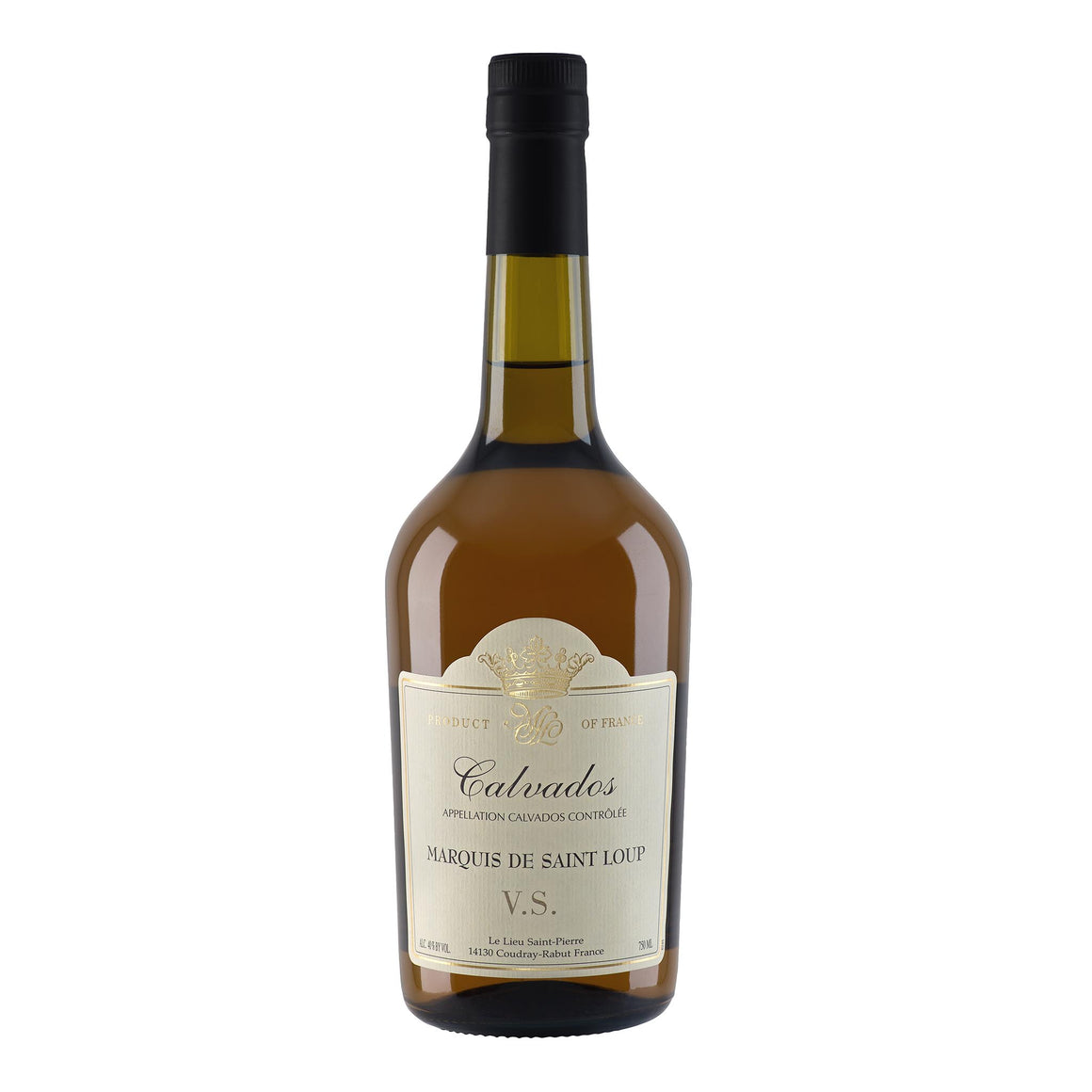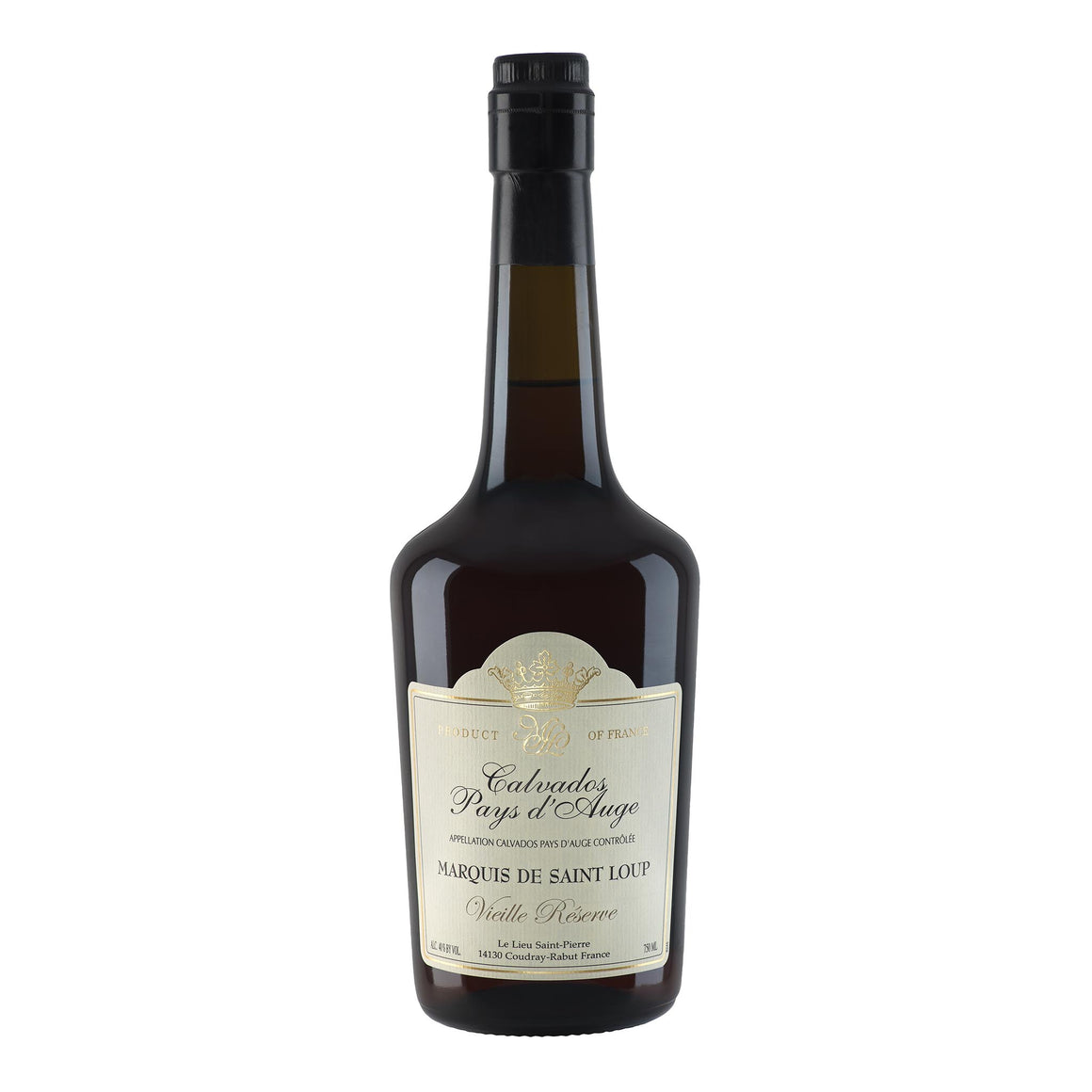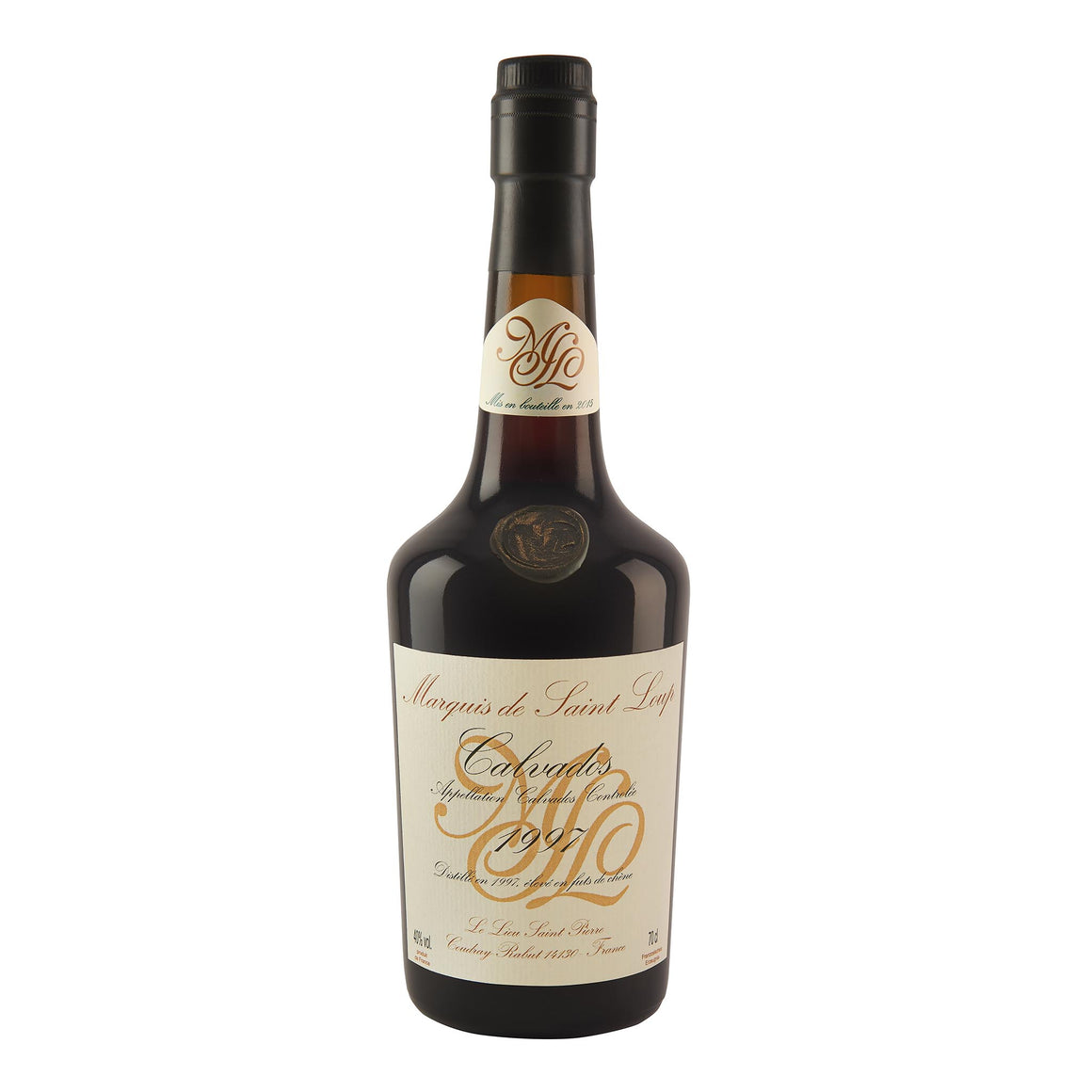This producer has been dedicated to cider and Calvados production for three generations. Marquis de Saint-Loup Calvados AOC is distilled in a column still giving the Calvados a very fruity and straightforward style. Their Calvados AOC Pays d’Auge, on the other hand, is distilled in a copper pot still which creates a mellow and full-bodied Calvados. Marquis de Saint-Loup cidre is an IGP Cidre de Normandie (indication géographique protégée). To receive the IGP designation, all apples used to make Marquis de Saint-Loup cidre must be an approved variety and must come from a specially certified geographic area.
Marquis de Saint-Loup cidre and Calvados are produced in the Normandy region of France in the Pays d’Auge, which has its own appellation d’origine controlée (AOC). The Pays d’Auge is an agricultural region that straddles the departments of Calvados and Orne and is known for its fine dairy products, apple orchards, and thoroughbred farms. All of this is set in a landscape dotted with beautiful, traditional half-timbered houses. The Pays d’Auge is best known for its fine Calvados and cider, and Camembert, Pont-l’Eveque, and Livarot cheeses.
Marquis de Saint Loup Calvados is distilled from cider made from 30 varieties of Normandy and Brittany apples introduced into France around the 12th century. As harvesting season begins in September, the apples are allowed to drop on the ground before they are harvested. By waiting for the fruit to fall, the apples have ripened to the perfect state to become Marquis de Saint Loup Calvados and cider.
Marquis de Saint-Loup Calvados ages in oak casks. The most volatile compounds, which give the young liquor its burning taste, disappear with time. The Calvados extracts various substances from the wood, including tannins which give it color and body. On contact with oxygen, the wood compounds dissolved in the spirit undergo a chemical transformation. This produces new aromas.
The storerooms of the Marquis de Saint-Loup Calvados contain many small casks, which allow more exchanges to take place between the spirits and the wood. The result is an acceleration of aging, with the drawback of greater losses through evaporation, affectionately called the Angels’ share. Many of the casks are former sherry and port casks. It was observed that these reused casks yielded fewer bitter tannins and helped to give a finer color, more body, and greater aromatic richness.










In stores and online
This Marquis de Saint-Loup Calvados AOC VS is produced, bottled, and aged in a 17th...

In stores and online
Silver Medal, 88 points, USA Spirits Ratings 2022. This Marquis de Saint-Loup Calvados AOC Pays...

In stores and online
This heady AOC Pays D’Auge Calvados is drawn from one, unique distillation batch from 1997 that was...
We currently distribute cider, Calvados, Armagnac, Cognac, Gin and Whisky to fine restaurants, bars, clubs, wedding venues and specialty retailers in the states of WA, CA, and CO through Beauchamp Imports, Inc. To request a tasting for your licensed establishment, or to inquire about distributing our products, please email us at orders@beauchampimports.com. We look forward to sharing our portfolio of fine products with you!
News about our producers, products and new releases. We’ll highlight things like the current year’s growing season and harvest; pressing and production activities; delectable cocktails and food recipes, cider history, local heritage, and more. And we offer special newsletter-only promotions.

© 2026 French Cider, Inc. 1483 Elliott Ave. W., Seattle, WA 98119 • 206.283.0909
